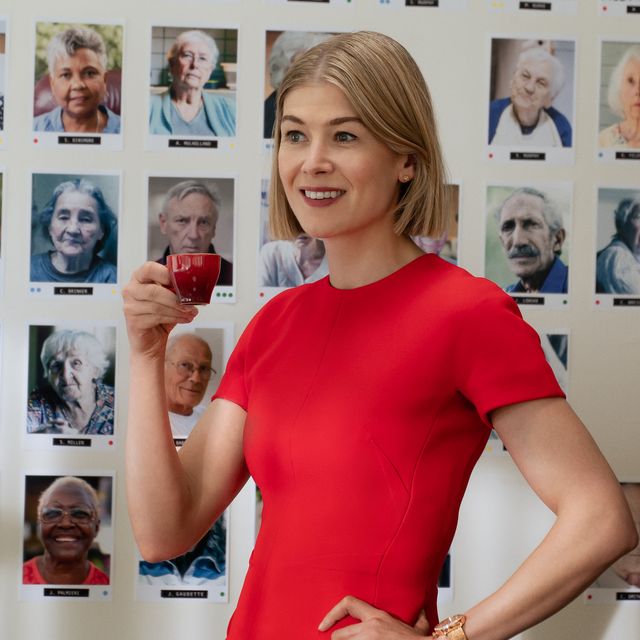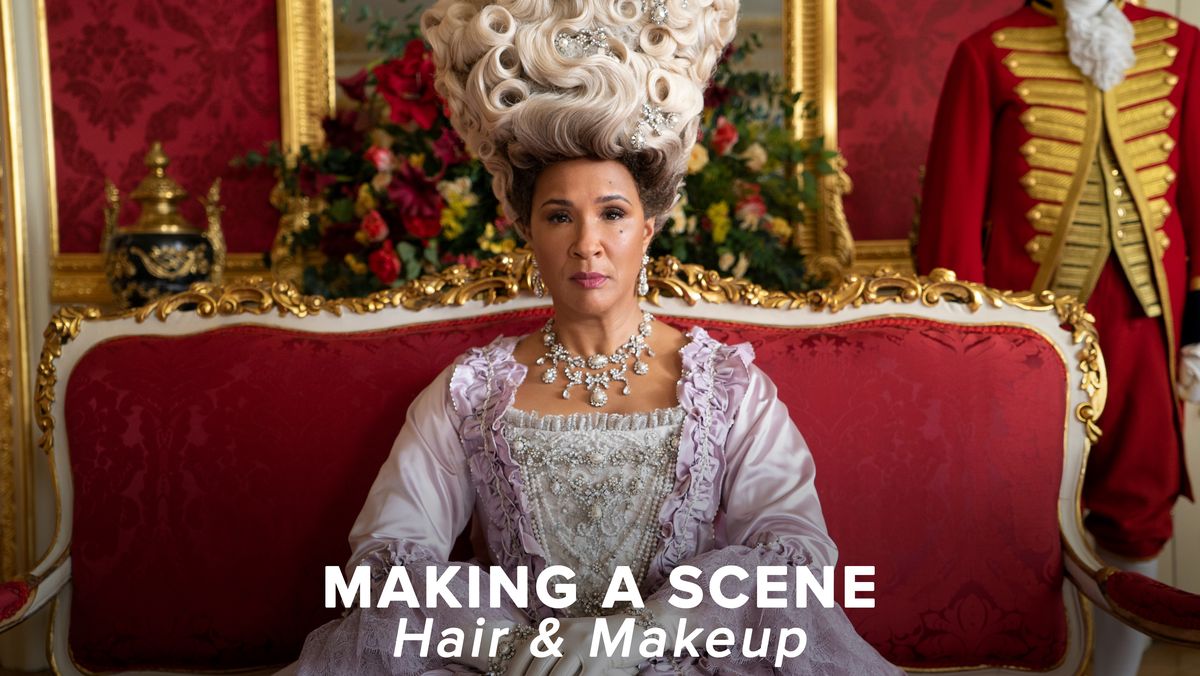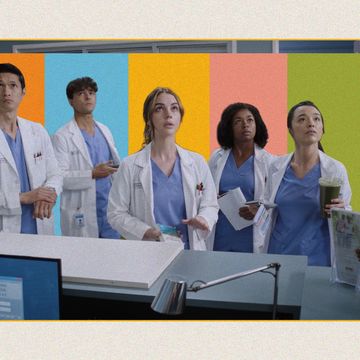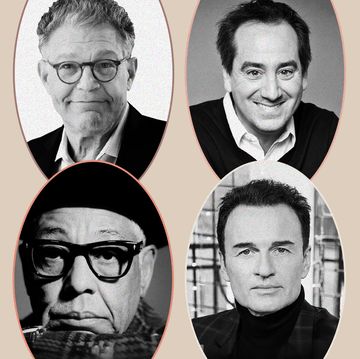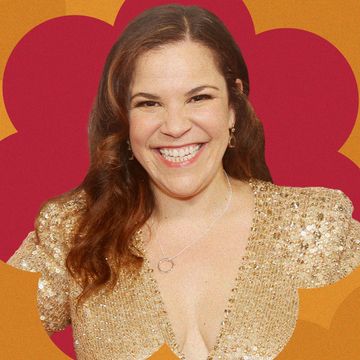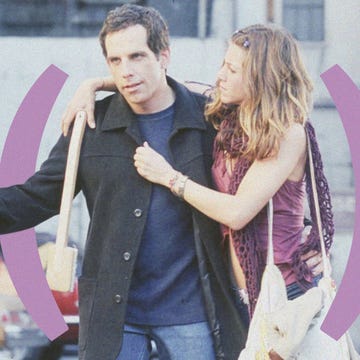We’ve come to know British actress Rosamund Pike for playing smart, sophisticated heroines, like Nobel Prize-winning scientist Marie Curie in 2019’s Radioactive or acclaimed Syrian war correspondent Marie Colvin in 2018’s A Private War. But lest we forget she first made a splash on American shores as Amy Elliott Dune, lead of the 2014 film adaptation of Gone Girl, who, in exhibiting multiple personality disorders, framed her husband for murder in a thirst for revenge.
Pike returns to form, so to speak, this month in Netflix’s satirical thriller I Care A Lot as a full-fledged anti-heroine. She’s so chillingly spot on in the role that it nabbed her a Golden Globe nomination for Best actress (she was previously nominated for both Gone Girl and A Private War).
In the film, Pike plays Marla Grayson, a corporate con artist who works with corrupt nursing homes and doctors who twist the truth to prove a senior citizen is unfit to care for themselves. Grayson seizes their assets and becomes their new court-appointed “guardian,” all the while using the same script on them all: “I’m just someone who cares.”
Marla is noted for her ruthlessness, which Pike says is a role that women don’t typically get to play — conniving, ambitious, and greedy. Marla is basically the female version of Leonardo DiCaprio in The Wolf of Wall Street, but things take a creepy turn in I Care A Lot when Pike’s character meets her match in Dianne Wiest, a snarky senior citizen with a powerful son who won’t let his mother get conned.
The film has thus far sparked plenty of debate — many viewers love Pike as the maniacal Marla while others can barely look at her. Shondaland spoke to Pike, from Prague (where she’s shooting a fantasy series called The Wheel of Time) about that dichotomy, courage, and overcoming fears.
NADJA SAYEJ: How is life in Prague?
ROSAMUND PIKE: I love it. It’s a great city to be in. My whole family is here and they love it, too. It's such a beautiful city but it’s a bit deserted. I feel privileged to see it at this time. While there is a lot of positivity in the air, there seems to be a lot of negativity, too. Countries are dissing each other’s policies. When you’re living in one of those countries, you see things that aren’t in the news. But we feel good here.
NS: Now that the film is out, what do you think about the reactions to your character and the movie? It's kind of a super love her or really hate her situation, how do you feel about the polarization?
RP: The most exciting thing is that this movie seems to be a conversation that adults want in on. That’s the thing: That’s when you know you’ve done your job. This is a buzz about a movie that I haven’t felt in this way since Gone Girl. It’s the type of movie all adults want to see on opening weekend. It’s a really cool feeling. You wouldn’t expect Marla not to be polarizing because she’s not asking for your empathy, she’s just living her truth, take it or leave it. But her truth is an unpalatable one for many people. She’s atypical in the run of female characters because there’s not a break in the narrative that gives you a sob story about her upbringing or background, or difficulties in her past. She’s ruthless, ambitious, living in the moment, and that’s quite refreshing to people, even if they’re shocked by it.
NS: It’s that thing where people love to hate you or hate to love you.
RP: Yes, I know. It’s a strong flavor. That’s what people are taking it as. Strong reactions, strong outpourings of anger, love. It’s good. you just don’t want people to be indifferent, do you?
NS: No, that’s the whole point of art. Why are films about predatory women so rare? Why don’t we see this more often?
RP: There’s been a blindsiding that women don’t do these things. But of course, they do. Why shouldn’t they? We’re half of humanity? Why shouldn’t we take up half the space of wrongdoing, too? In fact, in prison statistics, we don’t. Or maybe women just don’t get caught. Who knows?
NS: Maybe! How does your story update the way we look at crime stories?
RP: Historically, this grimy crime underworld is typically populated by men and it’s been this muted color palette — a dark sinister world where color is drained and things happen in the shadows. But here, we’ve got this crime drama where we have the main criminals breaking the law and they’re women. It's in tech colors, it's like a tech conference. Crime is happening in bold monochromes, yellows, reds and blues — primary colors. That’s an announcement of something new.
NS: What’s the plausibility of the scheme here, the corruption in nursing homes. Could it really happen?
RP: The writer, J Blakeson, based this story on a news report that a legal conservator did exactly what Marla is doing in the film. Never arriving to the scale that she operates on, but that was what she was doing. As soon as I read the script, I started searching for the original story because you want to know if this happened. As always, it's about efficiency. Marla makes people's lives easier, that’s why they go along with her. She makes life easier for the doctors, who don’t have to deal with their patients. They can deal with someone reasonable and rational who can make snap decisions, like Marla. They find her easy to deal with. She makes life efficient for other people — efficiency sells, efficiency wins. We see it all the time, don’t we?
NS: What was the most challenging part of playing Marla?
RP: The main overarching challenge was how to make this woman unlikeable — a bitch, whatever you want to say, a bona fide anti-heroine — and make her fun to watch. That was the line I knew I had to tread. As dark and menacing as she is, as predatory as she is, keep her fun and enjoyable to follow. To keep you wanting to follow her. I have watched women who have succeeded in doing that, like Nicole Kidman in To Die For or Linda Fiorentino in The Last Seduction. There isn’t a lot to choose from, but unlike both those women, Marla doesn’t use sexuality to get what she wants. She’s a queer woman who operates in a man’s world, impresses men, and gets what she wants from men but not through sexual favors or flirtation or suggestion or further intimacy. That’s unusual, actually, in the film world.
NS: She’s a queer protagonist too, which is still rare.
RP: Her sexuality isn’t the subject of the drama. We see queer protagonists but usually they’re coming out or their relationship is illicit, it’s bound up in a story. It’s not here. It’s the most honest part of her, it raises the stakes and gives her something to lose. Her relationship means a lot to her.
NS: Is it true that part of your inspiration for Marla came from watching a TED talk by Elizabeth Holmes, the disgraced health tech scammer?
RP: I wouldn’t say I based any of Marla on Elizabeth Holmes — she isn’t anything like her. But I watched the salesmanship. What was it about this woman that convinced so many people? That could make people feel comfortable? Speaking to people in a certain way, that down-to-earth honesty, to be very plausible, to embody qualities people like to get behind? I knew Marla had to do that. I did find her useful in that.
NS: The director made this as a satire about the American dream, welfare, and healthcare. What does it say about America today?
RP: It is saying there is this phenomenon in America, and I’ve seen it myself, that making a fortune is an end in itself. If you’ve made a fortune, that is something to be respected for. How you made it is less closely examined. Success is very “high billing” in that sense. It’s esteemed and admired. The Marla we see towards the end of the film, her business dealings were washed clean. Her idea of playing dirty — otherwise you’ll get screwed — is another satirical way to look at it. Her backstory is that she tried to do it the honest way. She started off with a boutique vaping business that got Walmart-ed out by a giant vaping store that opened across the street. So, she thought, “Fine, I’m just going to play dirty like everyone else.”
RP: There’s a quality of courage there, I guess. Why is that quality so important to you?
RP: It’s when you’re confronted by your fears and you show courage, that’s when real change happens in a person. They’re pushed to great things. That’s the case of Marie Curie and Marie Colvin, both of whom I played in films. Women who show courage in the face of total and utter bereavement, and by showing resilience in the face of sorrow is just tremendous. Marla has a different kind of courage. It isn’t admirable. Where other people see danger, Marla sees opportunity. When someone shows her a case of money and threatens to kill her, most people would take the money and shut up, but Marla just thinks “if there’s money, there must be more money.” She’s not afraid of dying. There’s tremendous freedom and bravery in that.
Nadja Sayej is an arts and culture journalist based in New York City who has written 5 books, including Biennale Bitch and The Celebrity Interview Book. Follow her on Twitter @nadjasayej.
Get Shondaland directly in your inbox: SUBSCRIBE TODAY
